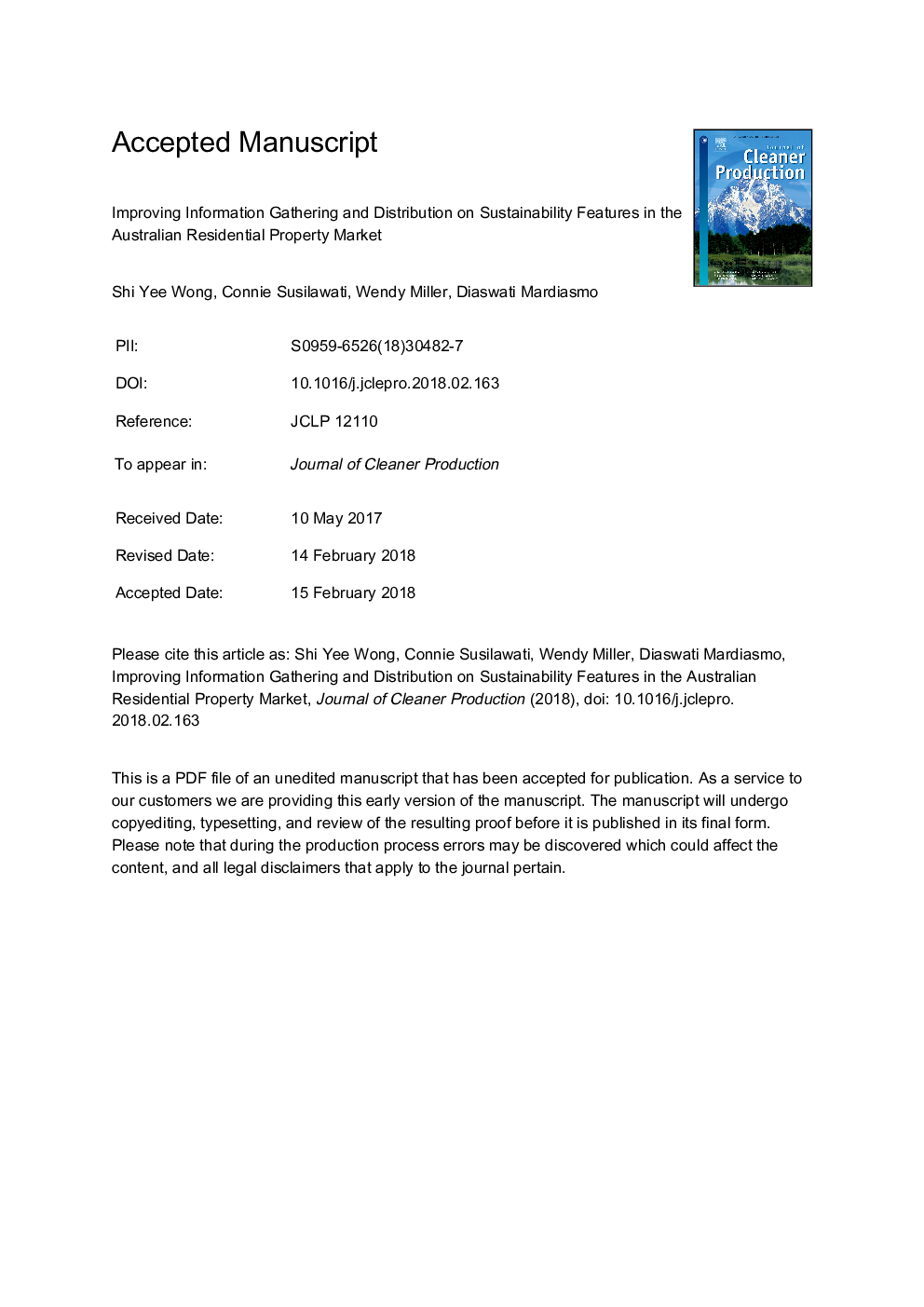| Article ID | Journal | Published Year | Pages | File Type |
|---|---|---|---|---|
| 8096693 | Journal of Cleaner Production | 2018 | 30 Pages |
Abstract
Asymmetric information distribution from sellers to buyers in the residential property market disadvantages buyers, as buyers may not have complete information particularly related to sustainability features (that contribute to occupant health, safety and amenity, over time), which could potentially reduce operational costs associated with the property. Property practitioners including real estate agents, property valuers and mortgage brokers who have direct connection with buyers could possibly help to bridge this information gap. Through 28 semi-structured interviews, this study examines the perspectives of Australian property practitioners regarding the challenges they face in collecting information and strategies for distributing the information. The results show that the main concerns of property practitioners are the lack of data on the economic benefits of sustainability features and the lack of resources with which to gather such information. A framework that includes collaboration between government, supply chain agents, property practitioners, third-party real estate data collectors, researchers, and buyers, is proposed, for better information gathering and distribution. This could potentially reduce asymmetric information, particularly as related to sustainability features for potential buyers and hence enhance market efficiency.
Keywords
Related Topics
Physical Sciences and Engineering
Energy
Renewable Energy, Sustainability and the Environment
Authors
Shi Yee Wong, Connie Susilawati, Wendy Miller, Diaswati Mardiasmo,
